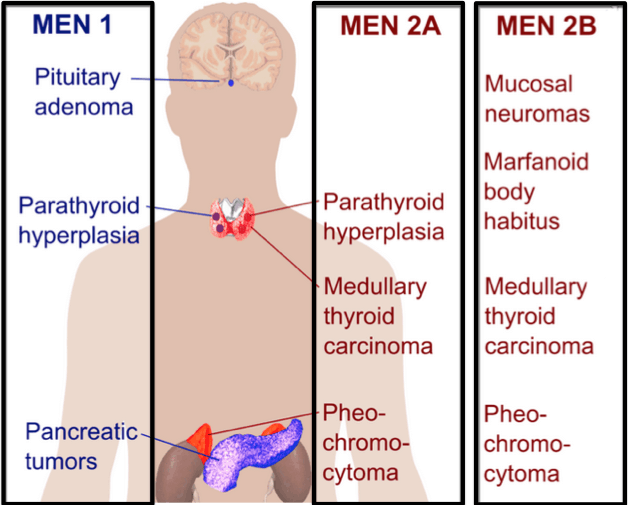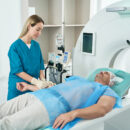Genetically Inherited Cancer Syndromes

It is known that people with a family history of cancer are more prone to certain types of cancer. Since cancer is not a single type of disease, the tests that should be done routinely will also differ between different types of cancer. Certain familial cancer syndromes may cause different types of cancer to occur together or different types of cancer to occur in family members. In such cases, a single type of cancer screening may not be sufficient to take precautions.
Cancer syndromes with a family history are usually related to gene mutations passed from parents to children. In familial inherited cancer syndromes, it may cause the same type of cancer to be seen in family members, a case of cancer at an early age, or more than one type of cancer in the same person.
Examples of familial cancer syndromes are breast and ovarian cancers, MEN syndromes, Li-Fraumeni syndrome, Cowden syndrome and Lynch syndrome.
Inherited Breast and Ovarian Cancer Syndrome (HBOC)
In some families, breast and/or ovarian cancer cases are encountered in more than one woman. Generally, the age at which cancer occurs in such families is lower than normal. At the same time, a woman can have separate tumors in both breasts or both breast and ovarian cancer can be observed.
This syndrome is usually BRCA1 or BRCA2 mutations are detected in their genes, but it should be known that even if there is no mutation in these genes, this syndrome can be observed in some people. In other words, another gene mutation that we do not know yet may cause this syndrome.
BRCA1 And BRCA2 Gene mutations are also associated with fallopian tube cancer, pancreatic cancer, and prostate cancer.
Li-Fraumeni Syndrome
Usually one of the tumor suppressor genes TP53 This syndrome, which is caused by a mutation in the gene, is sometimes CHEK2 It is also observed due to gene mutation. People with Li-Fraumeni syndrome can suffer from more than one type of cancer throughout their lives. Since radiation therapy also has a cancer-triggering feature in this patient group, careful attention should be paid to radiation therapy in this patient group.
Osteosarcoma, soft tissue sarcoma, leukemia, brain tumors, adrenal gland tumors and breast cancer are the most frequently observed cancer types in this syndrome. People are usually diagnosed with cancer at an early age.
Lynch Syndrome
The syndrome that increases people's risk of developing bowel cancer the most is Lynch syndrome. It is also known as hereditary non-polyposis colorectal cancer syndrome (HNPCC). Generally, people with this syndrome have a case of colorectal cancer before the age of 50.
In Lynch syndrome, in addition to colorectal cancer, endoemtrial cancer, ovarian cancer, stomach, small intestine, pancreatic, kidney, ureter cancers are also observed more frequently. Lynch syndrome is associated with MLH1, MSH2, MSH6, PMS1 and PMS2 gene mutations. Under normal conditions, when there is a mutation in these genes, which are responsible for repairing DNA damage, the DNA damage that occurs cannot be repaired, and then an increase in cancer rates is observed.
Cowden Syndrome
Almost all people with Cowden syndrome have benign, noncancerous hamartomas. These benign tumors, which are observed on the skin and mucous membranes (in the mouth and nose), can also be observed in the intestines.
In addition to these benign tumors, cowden syndrome also predisposes to certain cancers. For example, breast, thyroid, and endometrial cancers are the types of cancer most commonly associated with this syndrome. Not only cancer but also noncancerous cellular changes are frequently seen in cowden syndrome.
MEN syndromes
MEN syndromes are sometimes familial and sometimes they can develop later. They usually manifest themselves in the case of growth and increased activity of endocrine organs. It is quite common to observe multiple cancers or benign tumors. The picture below summarizes the types of cancer associated with MEN syndromes:

This list is not a complete list of all hereditary/genetic cancer syndromes. Generally, the most common types of cancer or the cause of which can be investigated are exemplified. If there is a tendency to have certain benign or malignant tumors in the family, cancer screening and regular health checks will become very important.
I wish you healthy days,
Elite Research and Surgical Hospital
Contact Us For Appointment:
Telephone line: 0392 444 3548 (ELIT)
Contact Form: https://www.elitenicosia.com/iletisim/

















